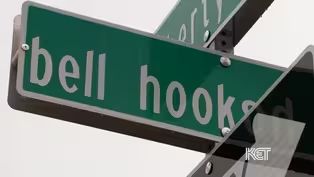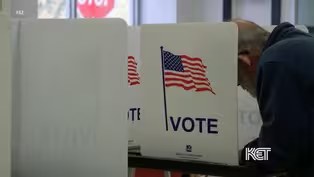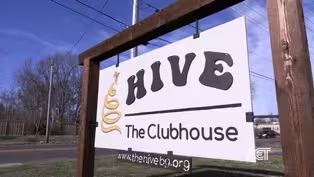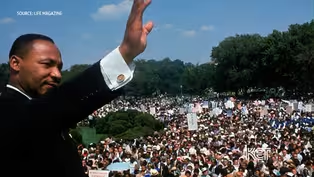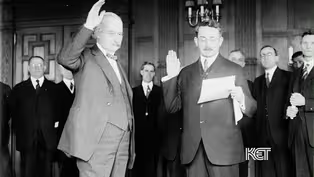
Trump Ballot
Clip: Season 2 Episode 197 | 3m 8sVideo has Closed Captions
UK law professor on SCOTUS ruling restoring Donald Trump to Colorado election ballot.
UK law professor and constitutional expert Josh Douglas discusses U.S. Supreme Court's ruling restoring Donald Trump to Colorado election ballot.
Problems playing video? | Closed Captioning Feedback
Problems playing video? | Closed Captioning Feedback
Kentucky Edition is a local public television program presented by KET

Trump Ballot
Clip: Season 2 Episode 197 | 3m 8sVideo has Closed Captions
UK law professor and constitutional expert Josh Douglas discusses U.S. Supreme Court's ruling restoring Donald Trump to Colorado election ballot.
Problems playing video? | Closed Captioning Feedback
How to Watch Kentucky Edition
Kentucky Edition is available to stream on pbs.org and the free PBS App, available on iPhone, Apple TV, Android TV, Android smartphones, Amazon Fire TV, Amazon Fire Tablet, Roku, Samsung Smart TV, and Vizio.
Providing Support for PBS.org
Learn Moreabout PBS online sponsorshipFormer President Donald Trump will be back on the ballot in Colorado.
In a unanimous decision, the US Supreme Court ruled Trump could not be excluded from the state's primary election ballot over his part in the January 6th attack on the Capitol.
Colorado Supreme Court tried to disqualify him under Section three of the 14th Amendment, known as the insurrection Clause of the Constitution.
We spoke to Josh Douglas, a constitutional law expert and professor at the University of Kentucky College of Law, about the ruling and why a unanimous decision does not mean the justices are united on the issue.
It was pretty clear from the oral argument that the court would reject the Colorado Supreme Court decision kicking Trump off of the ballot.
I do think it was a little bit surprising, and we should be careful about how we talk about the case in that it was unanimous in its result, but not unanimous in its reasoning.
And there were some separate opinions that really called into question the approach to the majority.
Chuck.
Driving the court's decision was this desire to say, look, one state can't do it on their own.
It's for a national office.
It's got to be a national body.
And the court did make a distinction between a state invoking Section 14, the 14th Amendment, Section three for a state office.
Let's say someone's running for governor and a state Supreme Court declares them ineligible because they engaged in an insurrection.
Supreme Court said states can do that.
The difference here is that it's a federal national office and it would be dangerous for one state to make that determination for the nation.
And I think it's important to recognize that although the court spoke with one voice just on the ultimate holding that Trump is eligible, or at least the Colorado Supreme Court could not render him ineligible.
What it said about whether Congress could do so and how it could do so was pretty fractured.
Unfortunately, the court's majority opinion seemed to propose more questions than answers on this aspect.
So what the court said is that any time Congress is passing a law pursuant to the 14th Amendment, it has to follow this test known as congruence and proportionality.
What the court really did here, the court's majority, is it gave itself more power.
It gave itself power to review anything Congress would do in this arena, which is a little bit strange in some ways.
When you think about the history of the 14th Amendment, if you know if it's true that only Congress has the power to invoke the 14th Amendment, Section three and declare a candidate ineligible, it seems a little bit strange for the court to say, but we can review that decision.
And here are the various standards that we would apply to determine if Congress acted appropriately or not.
Although a case of hugely national importance, the court wanted to speak with a unanimous voice.
It really wasn't unanimous here.
Today's decision also ends efforts by Maine and Illinois to get Trump taken off the ballot.
Video has Closed Captions
Clip: S2 Ep197 | 3m 15s | A new street sign graces downtown Hopkinsville in honor of native daughter bell hooks. (3m 15s)
Video has Closed Captions
Clip: S2 Ep197 | 4m 18s | The Kentucky Cancer Program is encouraging people to wear blue all month. (4m 18s)
Video has Closed Captions
Clip: S2 Ep197 | 3m 37s | Restoring voting rights to formerly incarcerated Kentuckians finds bipartisan support. (3m 37s)
Video has Closed Captions
Clip: S2 Ep197 | 3m 51s | The Hive offers resources for adults with intellectual and developmental disabilities. (3m 51s)
Video has Closed Captions
Clip: S2 Ep197 | 3m 6s | Frazier Museum commemorates the 60th anniversary of the March on Frankfort. (3m 6s)
This Week in KY History (3/4/2024)
Video has Closed Captions
Clip: S2 Ep197 | 1m 58s | A look back at this week in Kentucky's history. (1m 58s)
Providing Support for PBS.org
Learn Moreabout PBS online sponsorship
- News and Public Affairs

Top journalists deliver compelling original analysis of the hour's headlines.

- News and Public Affairs

FRONTLINE is investigative journalism that questions, explains and changes our world.












Support for PBS provided by:
Kentucky Edition is a local public television program presented by KET
